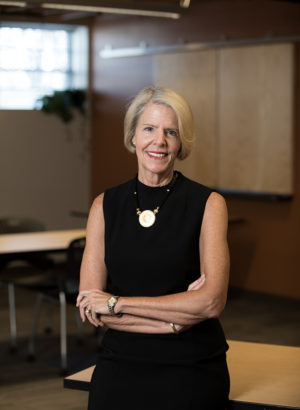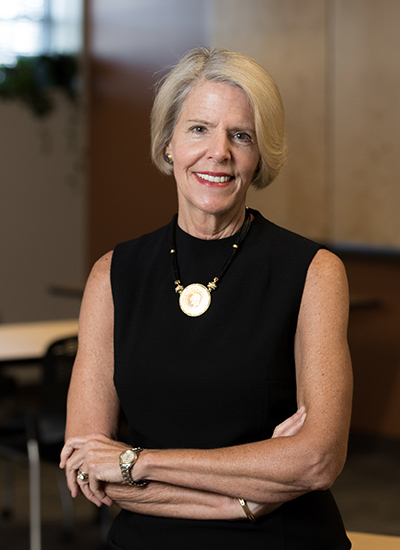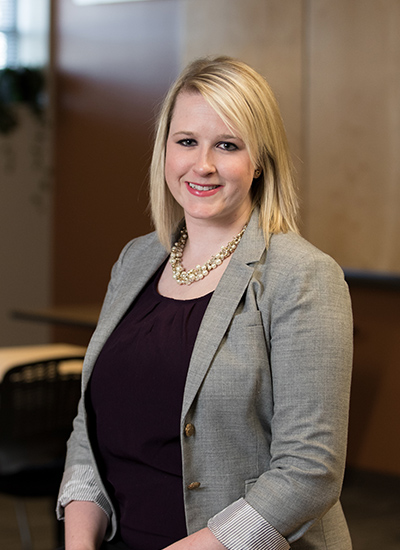 by Mary Stanley, JD,
by Mary Stanley, JD,
Director of Gift Planning & Legal Affairs at CICF
A recent article in the Stanford Social Innovation Review, “Philanthropy’s Missing Trillions,” caught our attention.
Its authors, Jennifer Xia and Patrick Schmitt, found that while 90 percent of American adults make a charitable gift each year, fewer than 6 percent include a charitable bequest in their will or estate plan. The authors assert that narrowing this gap by even a few percentage points could generate hundreds of billions of dollars in additional funding for charitable causes, so they set out to determine how. Part of the solution, they say, is for estate planners to talk about philanthropy—and for estate planning tools to be easier to utilize. The charitable gift planning team at Central Indiana Community Foundation (CICF) and its affiliates, The Indianapolis Foundation and Legacy Fund, can assist your clients in taking advantage of the ease, flexibility and usefulness of future funds in connection with estate planning.
All community foundation fund types, including donor-advised funds, donor designated funds, field-of-interest funds and scholarship funds, work extremely well as the charitable vehicle in an estate plan. At CICF, we can help you and your client choose the appropriate fund type to meet your client’s needs. While all of our fund types can be structured as future funds, many clients find field-of-interest funds and designated funds particularly attractive for inclusion in their estate plans.
Field-of-interest funds are structured to support effective charitable programs and/or organizations in a particular field or fields of interest to the donor. A donor may choose to establish a field-of-interest fund by instructing the community foundation to limit distributions from the fund to a charitable purpose or purposes specified in the fund agreement, such as the arts in Indianapolis, single mothers, hunger in central Indiana, Alzheimer’s research, etc. The specific field of interest may be broad or narrow, and we recommend contingency language in the event the problem or issue is solved. CICF has many active and future field-of-interest funds. The name of the fund can carry the donor’s name, such as the Donald Donor Family Foundation or the donor can choose a less identifiable fund name to preserve their anonymity. Donors also have the option of including the general interest area in the fund name, i.e., the Donald Donor Fund to End Hunger in Central Indiana.
Donor Advantages OF FIELD-OF-INTEREST FUNDS:
Field-of-interest funds have the advantage of the community foundation’s expertise concerning the most effective charitable organizations working in the particular field of interest. The most impactful program or organization at one point could very well change over time. For example, the problems faced by today’s youth are not the same as those that were encountered 50 years ago, and today’s arts organizations may not all exist 50 years from now, so field-of-interest funds allow the flexibility to meet the specific needs of the interest area at any given time. Field-of-interest funds often are utilized for legacy planning through bequests and testamentary trusts.
Designated funds provide that the annual income from the fund be used to benefit one or more specifically named charitable organizations. Often designated funds carry the name of the donor and the organization, or if a donor desires to support several charities through a donor designated fund, the fund can be named for the donor without the name of the organization. And of course, donors can choose for the fund to be anonymous or select a fund name that does not identify the donor if they so prefer.
Donor Advantages of Designated funds:
By establishing a designated fund at a community foundation for the benefit of a particular organization(s), rather than contributing directly to the organization(s), the donor gains the following additional assurances:
- enforcing any conditions the donor wants to place upon the gift
- ensuring against subsequent invasion of endowment principal, if that is the donor’s objective
- ensuring that the donor’s endowment fund will exist in perpetuity, even if the particular organization(s) should cease to exist or the purposes become obsolete
- providing for safe investment of the assets of the fund by CICF, with a view toward slow and steady growth of the fund
- preventing the designated organization(s) from being overwhelmed with a large lump sum, which may better ensure responsible use of the funds
- endowing the donor’s annual gift—by continuing annual lifetime giving after death
Donors wishing to make life income gifts, such as a charitable gift annuity, may be better off utilizing a community foundation with the residuum going to a designated fund at the community foundation for the benefit of the donor’s favorite charity or charities. Moreover, the community foundation is more likely to have a greater asset base to guarantee the annuity obligation. Future designated funds are established pursuant to written fund agreement with the foundation, but will not be funded until the triggering event in the donor’s estate plan. During the donor’s life, the donor may easily change the names of the designated charitable recipients, as well as the share of the annual distribution each charity is to receive.
Additional advantages of future funds
A significant advantage that a community foundation future fund can provide to your clients is the ability to gift one asset, e.g., a parcel of real estate, a valuable painting or coin collection, shares of closely held stock, or the fund can be the designated beneficiary of an IRA or life insurance policy, while the fund can benefit multiple charities through their future fund. Moreover, while the donor is still living, he or she can easily amend the fund agreement to add or eliminate charitable organizations, interest areas, and/or percentages of annual distributions to be received. Since the fund agreement already is referenced in the estate documents or on relevant beneficiary designation forms, your client can make changes to the fund agreement without necessitating a revision of the will, trust or other estate plan provision. It should go without saying, but unless a charitable trust or gift annuity is involved, these arrangements are entirely revocable.
Professional advisors use our future funds
CICF frequently works with professional advisors to establish future funds for their clients. Estate planning lawyer Peter Ten Eyck, partner with Hackman Hulett LLP, agrees that clients find our future funds easy to understand and incorporate in their estate plans as all or part of their philanthropic legacy. He has utilized CICF future funds for his clients in varying scenarios. A recent client wanted to help with the increasing problem of infants falling victim to the opioid crisis and who, through no fault of their own, are born addicted to drugs. CICF provided Peter’s client with a list of several local organizations that are working on different aspects of this issue, as he considered a designated fund to support one or more of these charitable organizations. The client ultimately chose to establish a future field-of-interest fund which, once funded through his estate, will provide annual distributions to organizations recommended by CICF’s community investment staff and approved by the board of CICF that are doing work in the following area:
“To charitable organizations serving babies born addicted to drugs. Distributions shall be used by the grantee organization exclusively for the program or programs that directly serve babies born addicted to drugs and shall not be used for other organizational programs or operational expenses.”
Another client couple of Mr. Ten Eyck’s have established a future donor-advised fund for their adult son to be funded through their estate plans. The fund agreement for the fund is in place, complete with the name of the fund and a provision for the son to be able to transfer the fund to his local community foundation in California (where he now lives) if it is more convenient for him.
April Risk Arnett, partner at Faegre Baker Daniels, has referred a few clients to CICF recently with innovative future fund ideas to direct future generations. In one instance, the donor’s grandchildren have been gathered and apprised of their “philanthropic inheritance” in the form of a future fund which, after ten years of annual grantmaking from the fund, they are instructed to grant out the entire fund balance in one large, impactful grant with the assistance of CICF. April says she turns to CICF especially when she knows that donor intent will need to be closely heeded, and CICF’s extensive philanthropic knowledge of the community will be useful in carrying out those intentions.
Call us!
As many of you know because they involve YOUR clients, we have myriad more examples of all types of future funds and we can be as detailed as your clients would like us to be. We can work with clients with current CICF funds to create a succession plan for the fund, where it converts into a designated and/or field-of-interest fund to fund the donor’s philanthropic legacy in perpetuity. We are also able to combine fund types to assist donors with very complex charitable goals. Authors Xia and Schmitt conclude that free, easy, intuitive tools, along with estate planners discussing charitable giving can “unlock the tremendous potential of planned giving” and help it be a “stunning force for good.” Wow! We believe that future funds are a powerful tool in the estate planning arsenal, and we are happy to answer any questions you might have about future funds or any other aspect of charitable gift planning.
CONTACT US

Mary Stanley
Director of Charitable Gift Planning and Legal Affairs
317-634-2423 x 319
MaryS@cicf.org







Leave A Comment